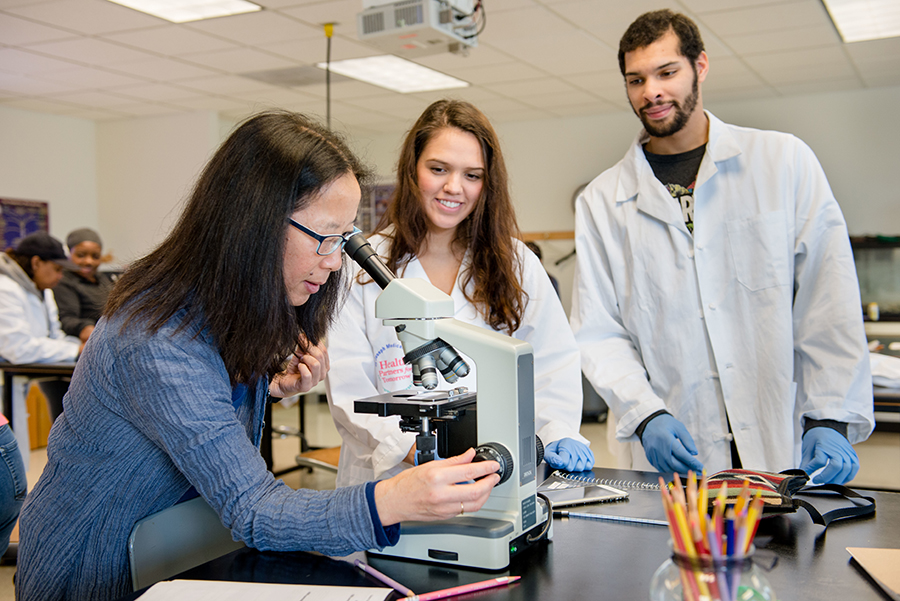About Integrated Biology and Chemistry
What are the elemental building blocks of the universe and all organisms? How do organisms learn to survive their changing environments and how to do they adapt? Where are the frontiers of chemistry and biology taking us next?
Programs on the Integrated Biology and Chemistry Path show you how life and matter are connected on many levels. Through lab experiments, field work, hands-on research, and science writing, you’ll gain the full range of skills needed to launch your career as a scientist.
Biology and chemistry are integrally connected. In programs on this Path, you’ll dive into both subjects together, giving you a more complete scientific perspective on how life functions on many levels.
Learn by doing through unprecedented access to our forests, shorelines, high-tech scientific instruments, and exceptional lab facilities.
- Investigate organisms in their environments
- Study chemical reactions critical to living systems
- Analyze samples to understand biochemical processes
- Solve problems using both biological and chemical knowledge
- Become an ambassador for science
- With knowledge of both biology and chemistry, you’ll be ready to tackle challenges in graduate school, your career, and the world at large.
Prepare for Careers and Graduate Studies Beyond this Path
Career Opportunities
- Bioinformatics
- Chemistry
- Ecology
- Education
- Forensic science
- Medical labs
- Medicine
- Pharmacology
- Research science
- Science writing
- Veterinary medicine
Graduate School Opportunities
- Biochemistry
- Biology
- Biotechnology
- Chemistry
- Environmental studies
- Medical school
- Public health
Labs and Studios
Get hands-on experience in chemistry and biology labs where you’ll learn the collaborative and analytical skills professional scientists use every day. You'll have access to a variety of labs, including getting to use the local forest and shorelines as living laboratories to explore questions of biological diversity, organismal behavior, water quality, nitrogen cycling, and more.
Learn more about Labs and Studios
Scientific Instruments
The independence and support you get as an undergrad scientist at Evergreen is a one-of-a-kind experience. In programs on this Path, you’ll learn to prepare and run your own samples and get to know advanced scientific instruments well enough to put them on your resume.
Graduating with skills in using these instruments will give you an edge over competition when applying for graduate schools, research opportunities, and jobs in the field.
Learn more about Science Labs and Field Facilities
Forest and Beach
Evergreen’s campus is a living laboratory you can learn from every day. The campus forest is the perfect place to learn how to measure the forest ecosystem and how to manage and conserve vital natural areas.
Evergreen’s beach gives you amazing opportunities to get hands-on with marine biology and aquatic sciences. You’ll learn to identify and analyze marine life and gain an understanding of human impacts on the shorelines and oceans.
Individual Learning
Faculty are passionate about helping you study what you’re most interested in. Sometimes that means letting you step out of the classroom for an independent experience such as internship or a learning contract of your own design.
Every year, Evergreen students take on life-changing internships with local organizations or government institutions. An opportunity like this could launch you into a career in the field where you can make a lasting impact on scientific work in Washington state and beyond.
Learn more about Individual Study
Check out related Courses and Programs in the Academic Catalog
